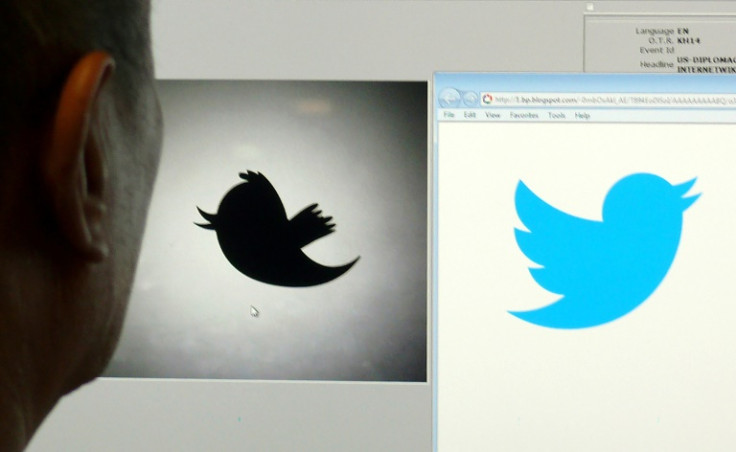For Political Activists, Twitter Packs A Vital Punch

From the Arab Spring uprisings to the MeToo movement in which women spoke up about sexual assaults, Twitter has proven itself a formidable ally for political activists and opposition groups, one whose reach and impact would be difficult to replace.
Other social media platforms may have more users, but the network now owned by the billionaire Elon Musk dominates the global conversation -- even as Twitter's future is being called into doubt.
"Twitter is clearly very influential in getting the media and officials to pay attention. So it has a very special and unique place in that way," said Mahsa Alimardani, a senior researcher at the human rights NGO Article 19.
During the anti-government protests that have rocked Iran in recent months, tweets are "helping Iranians bear witness to the pain and struggles of their fellow countrymen, helping the world bear witness to what's happening," she told AFP.
Especially in countries that have clamped down on independent journalism or foreign correspondents, Twitter provides a crucial lifeline to the outside world.
This week, posts from inside the Chinese iPhone factory operated by Foxconn showed workers rebelling against a total Covid lockdown, shattering the government's attempts to portray a veneer of calm amid its draconian efforts to contain the virus.
"It's very important to get information out to the international media but also to document human rights violations and atrocities," said Marcus Michaelsen, a researcher specialised in digital activism under authoritarian regimes.
Twitter had some 237 million daily users at end-June, well below the nearly two billion Facebook or one billion TikTok users.
But its pithy, at-a-glance format allows the network to punch far above its weight for opposition groups, since anyone can become a "citizen journalist" who instantly shares images that government authorities don't want to be seen.
For Nadia Idle, an Egyptian-British activist who took part in the Tahrir Square uprising in Egypt in 2011, tweets of anti-regime protests across the Middle East also encouraged people by showing that they were not alone.
"Its capacity to broadcast this event, and the amount of activists that were tweeting in English, made it a spectacle for people from the outside," she said.
Faced with viral tweets provoking global outrage, outside governments can also feel domestic pressure to take action or at least condemn repressive governments.
And even in democratic countries, Twitter's function as a digital town hall can provide activists with a megaphone that previously might have been out of reach.
Over the past decade, the BlackLivesMatter hashtag has become synonymous with the movement to highlight racism and police violence against African Americans, shining a light on discriminations that often went unseen.
"They use the features of Twitter, of social media, to create a protest identity, to create a common feeling within the movement," Michaelsen said.
"They know that they can reach journalists and policymakers more, more directly than on Instagram, for instance."
Since the upheaval created by Musk's takeover, Twitter has seen a wave of defections as people worry that posts will no longer be sufficiently curated to weed out disinformation and provocations.
Activists warn that if Twitter dies, the world will lose a crucial historical record of social movements that might not have gained traction without the digital documentation.
"Twitter has maintained an archive of so many different movements and so many different events... So losing that archive would be a big loss, it's a historical record in some way," Alimardani said.
Charles Lister, a political scientist at the Middle East Institute in Washington, said oppressive regimes or terror groups would be the only beneficiaries of losing a powerful check on their behaviour.
In his work on the Syria civil war, Lister says Twitter has been "vital" to documenting war crimes and providing aid.
© Copyright AFP 2024. All rights reserved.











